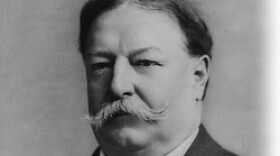It seems like Almost Yesterday that Warren Eastman Hearnes became governor of Missouri. Born in Moline, Illinois, on July 24, 1923, Hearnes grew up in Charleston, Missouri, the county seat of Mississippi County, a place he called home for the remainder of his life.
While in high school he determined that he wanted to attend West Point in pursuit of a military career. The desired appointment was received and he graduated from the academy in the class of 1946. In 1947, Hearnes married his high school sweetheart, Betty Cooper, a minister’s daughter.
While in the military he broke his ankle in a softball game, and on the last day of 1949 retired from the military. On that occasion, he said, there was no doubt that he was going to obtain a law degree - and enter politics. In typical Hearnes fashion, he became a member of the House of Representatives, and then received his law degree. He was energetic - and ambitious.
He was soon majority floor leader, Secretary of State, and in 1964 candidate for the governorship of his state. To be successful he had to overcome the Kansas City political power brokers, upsetting their candidate in the primary and with the help of Lyndon Johnson, won the governorship.
In 1965 the state Constitution was amended to permit the governors to succeed themselves, and in 1968 Hearnes became the first governor in the history of Missouri to serve two successive four year terms in office.
His eight years as governor saw significant changes in the state’s educational, mental health, environmental, and highway programs.
After his governorship, he was appointed a circuit court judge, becoming the first person to serve in all three branches of Missouri’s state government.







